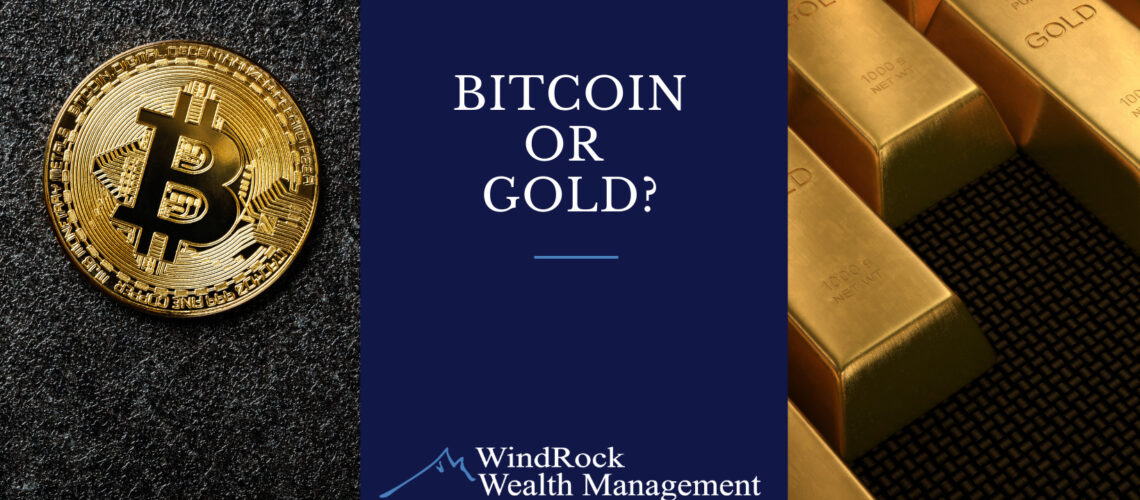This article was originally published by The Human Events Group on July 3, 2014
We have proposed a system for electronic transactions without relying on trust. – Satoshi Nakamoto, 20091
With this fairly mundane comment, the person or persons known as Satoshi Nakamoto (the jury is still be out) introduced bitcoin to the world. Since then, bitcoin has attracted widespread attention and interest – as well as numerous critics. Ironically, some of its most vocal detractors, such as Austrian economist Frank Shostak and financial commentator Peter Schiff, are champions of gold. As fiat currencies (money which exists solely due to the force of law, i.e., by fiat) further decline in value, will investors increasingly embrace a cryptocurrency such as bitcoin, or will they revert to the historically tried-and-true precious metals? Will it be bitcoin or gold?
As the values of bitcoin and gold are primarily contingent on their future acceptance as money, answering the question “bitcoin or gold” requires an examination of a more basic inquiry: what is money? Money is a medium of exchange and, as such, presupposes the ability to act as a store of value. Over two thousand years ago, Aristotle noted the primary qualities exhibited by money:
- Portability
- Durability
- Homogeneity, and
- Divisibility.
Money should also, at least before becoming accepted as money, possess “alternative value.” This term is unfortunately sometimes referred to as “intrinsic” value (as nothing possesses value without demand, nothing is intrinsically valuable).2 Gold, (and to a lesser extent silver) possesses these qualities and was therefore used as money until quite recently (1971). Bitcoin critics who are proponents of gold cite its lack of alternative value as a fatal flaw.
But is it? True, unlike gold or silver, bitcoin cannot be used for a non-monetary purpose. Perhaps this is not a weakness, but rather a strength. As bitcoin lacks physical form, it lacks alternative value, but herein lies its unique attribute relative to gold – there is nothing to physically transmit. In the characteristic of portability, it easily exceeds gold’s virtues.
Does this mean that bitcoin is no different than any fiat money which can be transferred with a computer keystroke? No, as its usage derives from general acceptance, not mandate.
And unlike the experience of all fiat currencies throughout time, bitcoin is limited in quantity (it is designed so only 21 million bitcoins can ever be “mined” into existence). Nakamoto remarked that in creating bitcoin he had removed trust. But more accurately, he removed faith and fortified trust, for just as gold and silver use nature (their elemental physical characteristics) as an objective standard, so bitcoin utilizes math (cryptography).
The question of what ultimately may be the future of money may be “bitcoin or gold?”, but perhaps the answer should be bitcoin and gold. For millennia, gold and silver coexisted as money, so why not bitcoin as well? Bitcoin is so unique in the history of money, and so complementary to gold, that one day in the future, it – or some other cryptocurrency (assuming they survive government regulation and financial repression) – may become more than today’s speculative investment.
Endnotes:
1 Nakamoto, Satoshi. Bitcoin: A Peer-to-Peer Electronic Cash System. 24 May 2009 <http://bitcoin.org/bitcoin.pdf>.
2 For a real life example of the importance of “alternative value” as a quality of money, see “Only Criminals Use Honest Money” by Christopher Casey as published by the Mises Institute. <https://mises.org/library/only-criminals-use- honest-money>.
About the Author: Christopher P. Casey is a Managing Director with WindRock Wealth Management. Mr. Casey advises clients on their investment portfolios in today’s world of significant economic and financial intervention. He can be reached at 312-650- 9602 or chris.casey@windrockwealth.com.
WindRock Wealth Management is an independent investment management firm founded on the belief that investment success in today’s increasingly uncertain world requires a focus on the macroeconomic “big picture” combined with an entrepreneurial mindset to seize on unique investment opportunities. We serve as the trusted voice to a select group of high net worth individuals, family offices, foundations and retirement plans.
All content and matters discussed are for information purposes only. Opinions expressed are solely those of WindRock Wealth Management LLC and our staff. Material presented is believed to be from reliable sources; however, we make no representations as to its accuracy or completeness. All information and ideas should be discussed in detail with your individual adviser prior to implementation. Fee-based investment advisory services are offered by WindRock Wealth Management LLC, an SEC-Registered Investment Advisor. The presence of the information contained herein shall in no way be construed or interpreted as a solicitation to sell or offer to sell investment advisory services except, where applicable, in states where we are registered or where an exemption or exclusion from such registration exists. WindRock Wealth Management may have a material interest in some or all of the investment topics discussed. Nothing should be interpreted to state or imply that past results are an indication of future performance. There are no warranties, expresses or implied, as to accuracy, completeness or results obtained from any information contained herein. You may not modify this content for any other purposes without express written consent.


